10 Disagreements With the Sight and Sound Poll's 250 Greatest Films List
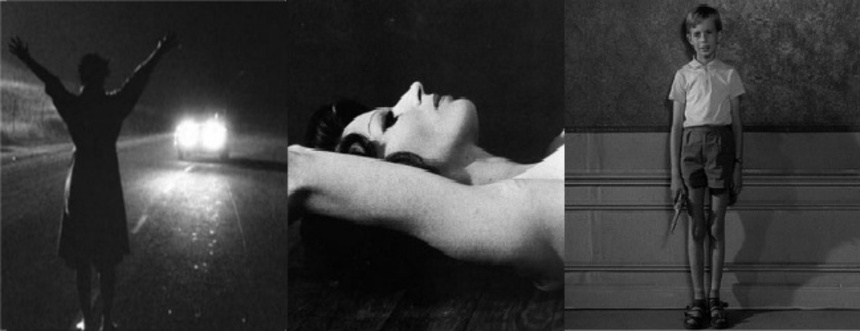
Granted all arguments with these sort of lists are arbitrary and subjective, but then again, so are these sort of lists. And thus, I present the top ten questionable, baffling and straight up wrong decisions in this list.
A bit about my own method: I thought mostly about the lists in terms of logical alternatives to movies with which I disagree. For example, I resisted arguments like "Paris, Texas is worthless except for the awesome ending with Nastassja Kinski. Get it off this list."
I also tried to think about the list in terms of "greatest" and not "favorite." and thus I did take the movie's influence on cinema and how well it has aged into consideration rather than yielding immediately to whatever irrational love I have for certain fun movies. Thus, my "replace Paris, Texas with The 'Burbs" argument didn't make the list either. Except in a few cases I avoided trivial ranking arguments like "I like La Dolce Vita way better than 8 1/2." Also, as is usually the case with rules, I bent and broke them sometimes.
So take a look at the list on the BFI site (which includes lots of time-killing goodies including every single critic's ballot), and then chime in with your own suggestions, arguments and praise in the comments.
*Note: Many movies tied for certain places, which is why some numbers below repeat.
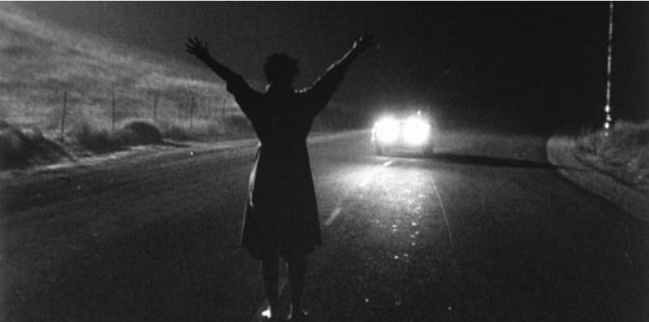
1. Replace The Big Sleep (#202) with Kiss Me Deadly.
Yes, Humphrey Bogart's chemistry with Lauren Bacall is great, and yes, Howard Hawks' Film Noir was something of a milestone for the genre. But I'll argue that, besides the performances, the film has not aged so well, especially once you've read the sucker-punch of a novel by Raymond Chandler on which it was based. On the other hand, the subversive, apocalyptic and at times satirical bleakness of Robert Aldrich's Noir masterpiece Kiss Me Deadly seems more bold and ahead of its time on each viewing. And if we're going to give Chandler props here, I'd take his conflict-ridden collaboration with Billy Wilder on Double Indemnity over The Big Sleep as well.
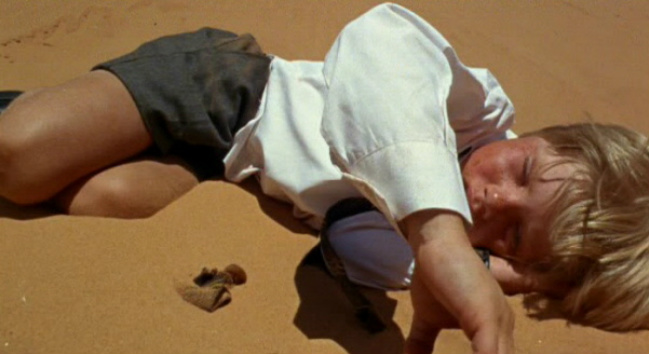
2. What the hell is Nicolas Roeg and Donald Cammell's Performance doing at #110 while Roeg's Don't Look Now is #127 and Walkabout isn't even on the list?
Performance does have the distinction of being one of the only movies that gave me a headache solely by virtue of the ridiculous editing, and this NSFW music video scene with Mick Jagger is amazing. But really, Roeg's montage-heavy, go-for-broke style was used to a much more affecting, thrilling and eye-opening end in his later films like Don't Look Now, Walkabout, and Bad Timing (Also not on the list). Performance is worthwhile, but more as a fascinating, psychedelic relic from the 70's.
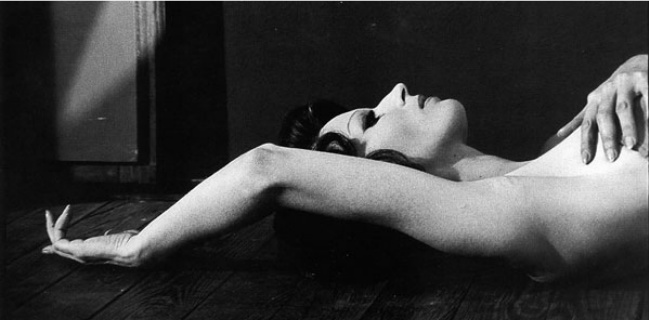 3. Replace Salo: 120 Days of Sodom (#202) with Teorema
3. Replace Salo: 120 Days of Sodom (#202) with TeoremaSince it is indeed one of the most shocking and brutal movies ever made, Salo: 120 Days of Sodom tends to get a lot more attention than most of Pier Paolo Pasolini's other films. But, while it shows incredible conviction and honesty as a fetishistic criticism of Fascism and consumerism, it's also far more shallow and straightforward than many of the Pasolini's other films. In its place, I nominate Teorema, in which Terence Stamp plays a mysterious visitor (God? The Devil?) who seduces an entire bourgeois family and changes each of their lives in a different way. Upon seeing it for the first time, Roger Ebert wrote, "I don't feel ready to write about this mysterious film; perhaps, a week from now, I'll decide it is very bad, a failure. But perhaps it is the most brilliant work yet by that strange director." Now that filmmakers as disparate as Takashi Miike (Visitor Q) and Ry-Russo Young and Lena Dunham (Nobody Walks) have found the film interesting enough to make their own version of it, I think it's safe to say that it's a bit closer to brilliant.
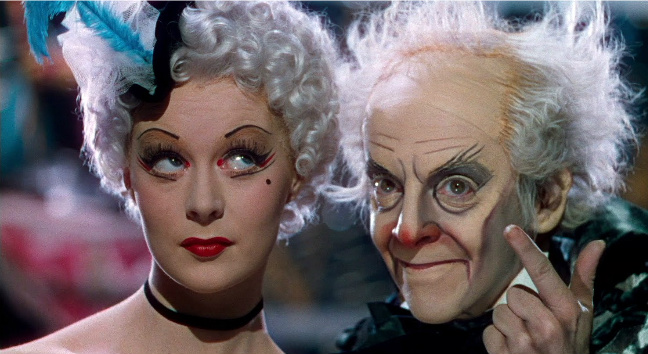
4. Splitting Hairs: A Matter of Life and Death (#90) vs. The Red Shoes (#117)
Michael Powell and Emeric Pressburger's A Matter of Life and Death is a fine movie -- funny, romantic and often visually inventive. But compare it with the intensity, energy, emotion and action of their next film, The Red Shoes, and it seems completely lifeless and forced in comparison. I say this after watching the two films within a few days of each other. Also, as far as fantasies about the afterlife, Ernst Lubitsch's Heaven Can Wait is much funnier and more touching. Which brings me to number 5.
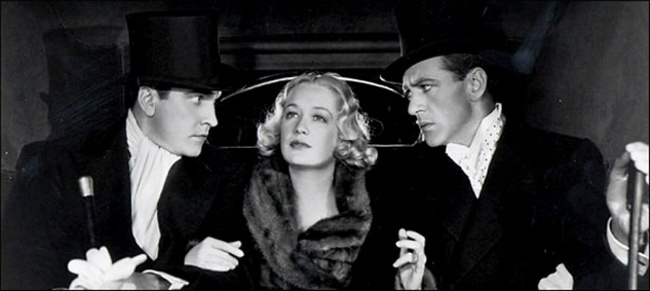 5. The list missed the two best Ernst Lubitsch movies.
5. The list missed the two best Ernst Lubitsch movies. It was nice to see the screwball comedy master (sorry, Preston Sturges) was well-represented on the list with Trouble in Paradise (#117), To Be or Not to Be (#144) and The Shop Around the Corner (#202). I like all of those movies! But in terms of laughs or creatively sticking it to the censors, nothing rivals Lubitsch's Design For Living, which is possibly the most cheerful, hilarious movie about a threesome ever made. Also, none of these choices are quite as touching as Heaven Can Wait, which somehow sustains its manic comic energy while poignantly tackling tragedy and heartbreak.
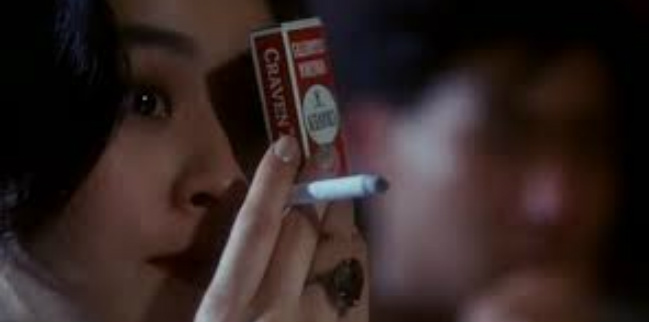 6. Is In the Mood for Love (#24) really so much better than all of Wong Kar Wai's other movies?
6. Is In the Mood for Love (#24) really so much better than all of Wong Kar Wai's other movies?I'm seriously asking. I won't dispute that the film is a formally and visually amazing movie that mines emotional depths that many equally-stylized movies don't dare to even seek. But Kar Wai's Chungking Express (#144), Days of Being Wild (not on list) and even Fallen Angels (not on list) do that too -- and they actually bring a sense of fun and discovery to the mix! Though, judging by the number of comedies on this list, maybe critics don't like fun?

7. Critics don't seem to like fun.
There is likely some exclusion bias in this list since it's totaling scores of so many critics' top ten lists, but still, how about a little respect for some of the greatest blockbusters and crowd-pleasers of all time? You know, the ones that have transported and touched more people than all four Yasujiro Ozu movies on the list combined? With Bergman, Fellini, Rossellini and even boredom-master Antonioni taking up four spots or more each, it would have been nice if critics were able to make room for at least Ghostbusters, Back to the Future or Raiders of the Lost Ark.
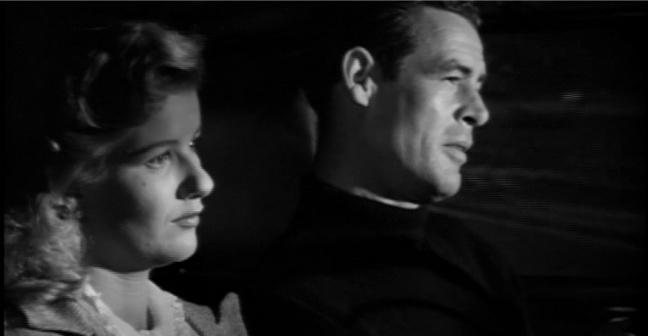
7. Give Max Ophuls' pulpy melodramas some love.
This one's probably a bit unfair since I fell happily asleep during The Earrings of Madam De... (#93) -- though I loved Letter from an Unknown Women (#154). But I'm still sad that some of Ophul's less highbrow Hollywood work never gets recognition. For example, his melodrama/noir Caught, in which Robert Ryan plays a rich tyrant who loves his pinball machine more than his wife, creates a claustrophobia, suspense and sense of awe and disbelief that I don't know that I've seen in any melodrama before. I won't say he tops Douglas Sirk in this department, but he definitely creates a mood as unique and interesting as any found in Sirk's films. His follow up, A Wreckless Moment is a real gem too.
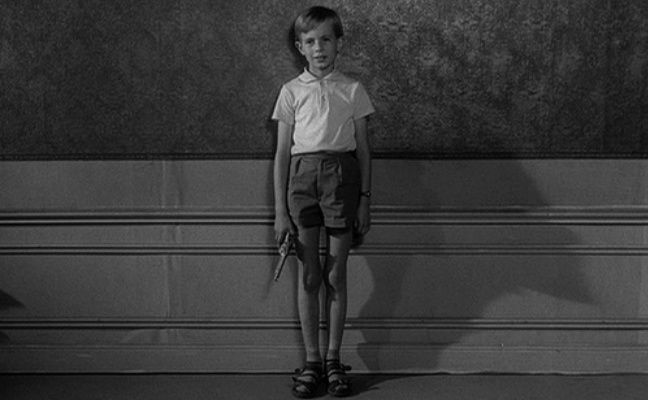 9. The Silence has aged better than most Bergman movies on this list.
9. The Silence has aged better than most Bergman movies on this list. No disputing that Cries and Whispers (#154), Persona (#17), The Seventh Seal (#93), Wild Strawberries (#63) and Fanny and Alexander (#84) are all great movies, but, with the possible exception of Persona, I honestly believe that The Silence is one of the most accomplished, daring movies Bergman ever made. As two women and a child wander around a hotel on a fictional Island occupied only by men, you'll likely be reminded of David Lynch, Stanley Kubrick's The Shining and Woody Allen's Stardust Memories (OK, so that last one is intentional...). But the balance of anguish, humor, surrealism and sexual energy that Bergman somehow weaves together here still hasn't been matched.
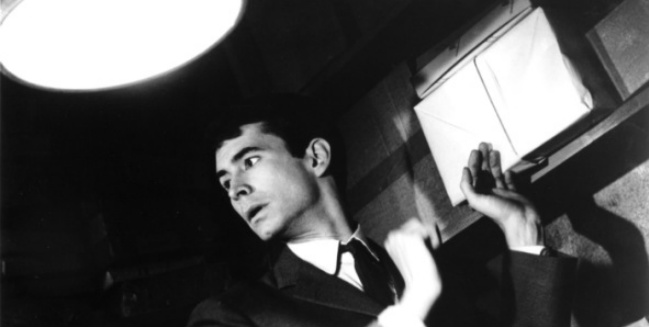 10. Orson Welles made a much better literary adaptation than The Magnificent Ambersons (#81).
10. Orson Welles made a much better literary adaptation than The Magnificent Ambersons (#81).I understand the apologetic love for Welles' follow-up to Citizen Kane, with many critics calling it a near-masterpiece that was ruined by heavy studio interference in the editing room. But Welles also made an actual masterpiece out of a difficult-to-adapt novel with no studio interference. Yep, his version of Franz Kafka's The Trial with Anthony Perkins is nearly perfect on its own terms, and is reportedly considered by Welles to be his best film.
And... I'm beat. Your turn to go wild! How about the omission of Rebel Without a Cause or Nagisa Oshima's entire filmography? Where is Samuel Fuller? And if they're going to put Psycho at #34 how about a shout out to Michael Powell's equally amazing voyeuristic thriller Peeping Tom? Or what about the great offbeat picks that made the list like The Texas Chainsaw Massacre and Two-Lane Blacktop? Chime in with your own thoughts below.

Do you feel this content is inappropriate or infringes upon your rights? Click here to report it, or see our DMCA policy.






